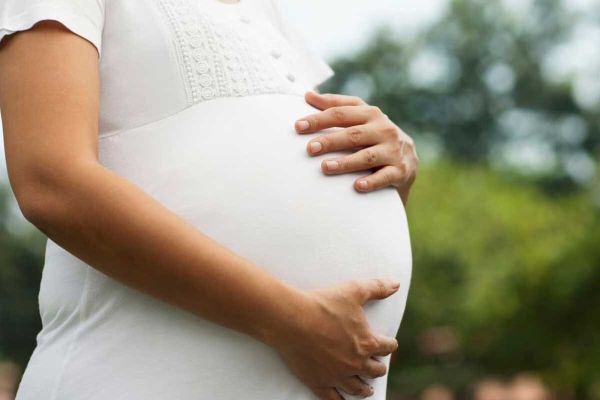But the shocking revelation was no joke.
Katelyn Yates, a 20-year-old nursing assistant from Illinois, visited the emergency room due to throat inflammation. Doctors suggested an X-ray to investigate further but routine protocol required a pregnancy test beforehand to ensure safety against radiation. This is done as unborn babies are more sensitive to radiation than adults. Surprisingly, the test came back positive. It also revealed her human chorionic gonadotropin (hCG) levels were "off the charts," confirming she was carrying four babies. HCG is a hormone produced by the placenta during pregnancy.
"I was completely in shock," Yates told TODAY, recalling the moment. At the time, she and her now-fiancé, Julian Bueker, 21, had been together for just six months. Despite the unexpected news, Bueker's excitement helped Yates feel reassured. "He was so excited," she said.
While the news brought excitement to the couple, the pregnancy came with its own set of challenges. Yates was diagnosed with preeclampsia, a dangerous condition causing high blood pressure, and experienced liver and kidney complications in her third trimester. "I couldn't breathe on my own," she recalled.
Doctors delivered the babies via C-section at 28 weeks and four days. On October 17, Elizabeth Taylor, Max Ashton, Elliot Ryker and Zya Grace were born at HSHS St. John's Hospital in Springfield, Illinois. Of the four babies, Max and Elliot are identical twins.
Yates shared that Elizabeth was the smallest of the babies, weighing just 1 pound 2 ounces, while Max, the largest, weighed 2 pounds 6 ounces. Despite their premature arrival, their progress has been remarkable.
"They're doing phenomenal. They are gaining weight and growing. Elizabeth is about six grams away from reaching 2 pounds," Yates said while talking to the portal.
"It's amazing to me how well they are doing. Just a few weeks ago, they were the size of my hand," she added.
Dr Meghana Limaye, a maternal-fetal medicine specialist at NYU Langone Health's Department of Obstetrics & Gynecology, described spontaneous quadruplets as an "extremely rare occurrence."
Meanwhile, Yates is seeking financial support through donations on Venmo to help care for her growing family.
